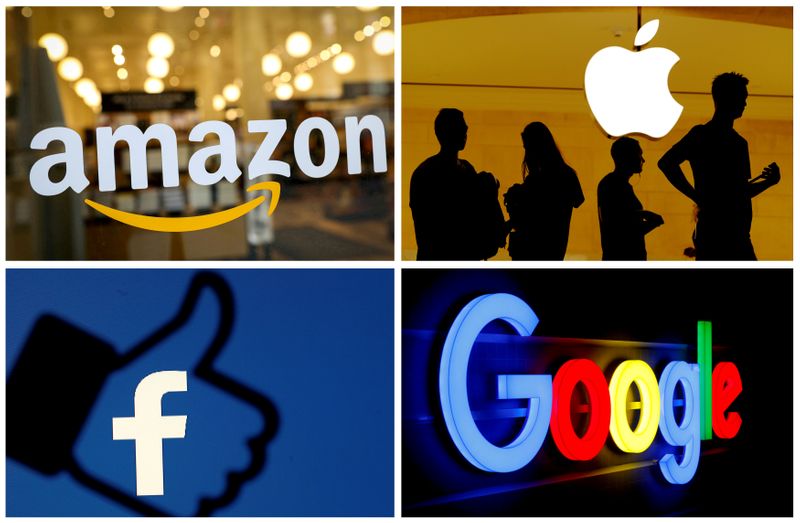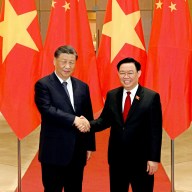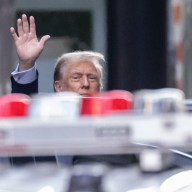LONDON (Reuters) -Shares in U.S. technology giants barely reacted on Monday to a landmark global minimum corporate tax deal agreed between the world’s richest nations, with analysts saying it will take the backing of low-tax nations to have any meaningful impact on the companies’ bottomlines.
The Group of Seven (G7) advanced economies agreed on Saturday to back a minimum global corporate tax rate of at least 15% and the focus now shifts to the G20 countries for a wider agreement on the new tax proposals.
Analysts say the tax deal wouldn’t hurt companies unless it’s agreed with tax-haven countries such as Ireland, whose economy has been booming with the influx of billions of dollars in investment from multinationals due to lower taxes.
In morning U.S. trading, shares of Apple, Amazon and Google-parent Alphabet <GOOGL.O> dipped 0.2% to 0.5%, while Facebook edged up 0.1% and Microsoft rose 0.6%. The benchmark S&P 500 index was down 0.2%, while the tech-heavy Nasdaq was little changed.
Europe’s tech stocks index slipped 0.1%.
“The details of the implementation are still to be ironed out and potentially further watered down,” said Marija Vertimane, senior strategist at State Street Global Markets.
Dublin, which has resisted European Union attempts to harmonize its tax rules, is unlikely to accept a higher minimum rate without a fight.
“I would treat the current proposal as a small positive for the market,” Vertimane added pointing to levies being lower than what was initially discussed.
Peter Tuz, president of Chase Investment Counsel Corp in Charlottesville, Virginia, called it “neutral” for the market.
While any tax hike is “negative to the way people value stocks,” the agreement could indicate that U.S. President Joe Biden will be less aggressive in seeking an increase of the U.S. corporate tax rate to 28%, Tuz said.
“They might reduce the maximum they were trying to seek, which in general I would think would be a better thing for a lot of U.S. companies,” Tuz said. “The great majority probably do not operate outside the U.S. The large ones do, but plenty don’t.”
The G7’s proposals are seen targeting technology companies that sell services remotely and attribute much of their profits to intellectual properly held in low-tax jurisdictions.
“The immediate market implications are likely to be minimal,” said Ian Williams, economics & strategy research analyst at Peel Hunt.
“No G7 nation currently charges that low a rate and the details, including agreement from numerous smaller countries, require plenty of work.”
(Reporting by Thyagaraju Adinarayan and Sagarika Jaisinghani; additional reporting by Lewis Krauskopf Editing by Rachel Armstrong, William Maclean and Bernadette Baum)



















